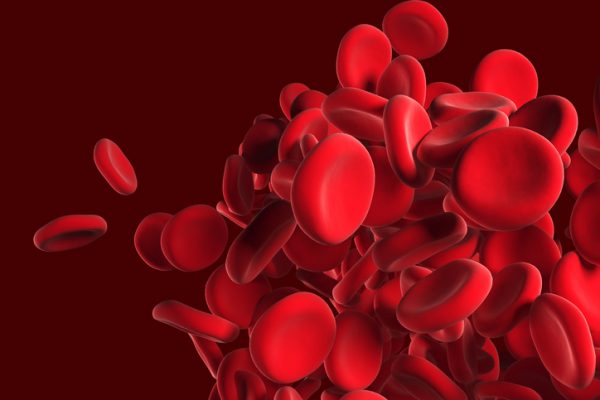
A U.S. biotech company has withdrawn its application seeking approval for a drug to treat sickle cell disease in Europe following a negative review by a body of the E.U.’s drug regulation authority.
Torrance, California-based Emmaus Life Sciences said Thursday that it was withdrawing its marketing authorization application with the European Medicines Agency for Xyndari (glutamine), which it markets as Endari in the U.S., after a negative opinion by the EMA’s Committee for Medicinal Products for Human Use, or CHMP. The CHMP stated that the data in the application did not show the drug was effective at reducing the number of sickle cell disease crises or hospital visits. It had previously issued a negative opinion in May.

Behavioral Health, Interoperability and eConsent: Meeting the Demands of CMS Final Rule Compliance
In a webinar on April 16 at 1pm ET, Aneesh Chopra will moderate a discussion with executives from DocuSign, Velatura, and behavioral health providers on eConsent, health information exchange and compliance with the CMS Final Rule on interoperability.
Shares of Emmaus were down 9 percent Friday morning on the over-the-counter market and were down more than 20 percent when markets closed.
The drug, marketed as Endari in the U.S., has had Food and Drug Administration approval to treat sickle cell disease in patients aged 5 and older since 2017. Earlier his month, the FDA accepted an application for accelerated approval for Global Blood Therapeutics’ voxelotor, another drug to treat sickle cell disease.
Concerns expressed in the CHMP’s opinion in May included a higher discontinuation rate among patients taking the drug than among those taking placebo, and data on how the drug worked for them was not available, with the committee concluding that the way their data were dealt with was not appropriate. Many patients in a supportive study also dropped out early, and the higher number of patients in the Xyndari arm than in the placebo arm who had received another drug, hydroxyurea, may have influenced the results.
According to data from the Phase III study on the ClinicalTrials.gov database, the trial enrolled 230 patients, of whom 152 were randomized to the Endari/Xyndari arm and 78 of whom were randomized to placebo. Of those in the treatment arm, 55 did not complete the study, compared with 19 of those in the placebo arm, yielding respective discontinuation rates of about 36 percent and 24 percent.

A Deep-dive Into Specialty Pharma
A specialty drug is a class of prescription medications used to treat complex, chronic or rare medical conditions. Although this classification was originally intended to define the treatment of rare, also termed “orphan” diseases, affecting fewer than 200,000 people in the US, more recently, specialty drugs have emerged as the cornerstone of treatment for chronic and complex diseases such as cancer, autoimmune conditions, diabetes, hepatitis C, and HIV/AIDS.
One sickle cell disease expert noted that the drug seems to have been approved in the U.S. because of the limited treatment options for sickle cell disease and there being few problems with safety, but it still raised other issues.
“There were multiple methodological concerns about the pivotal study of [Endari] to prevent acute complications of sickle cell anemia,” wrote Dr. John Strouse, a hematologist and associate professor of medicine at Duke University, in an email.
The FDA’s Oncologic Drugs Advisory Committee had expressed similar concerns to those of CHMP about the higher discontinuation rate in the treatment arm. ODAC nevertheless voted to support the drug’s overall efficacy and safety profile.
According to the Phase III data that led to FDA approval, patients in the Endari arm experienced a median three sickle cell crises, two hospitalizations and 6.5 days in the hospital, compared with a respective median four crises, three hospitalizations and 11 days in the hospital among those receiving placebo. The Endari arm also showed an increase in the number of days before a sickle cell crisis occurred and a lower number of patients experiencing acute chest syndrome.
“Because we have demonstrated the efficacy of Xyndari, as supported by the data from the trials conducted, we are disappointed by the CHMP’s position,” Emmaus CEO Yutaka Niihara said in a statement Thursday. “We remain committed to the patients who suffer from sickle cell disease and will continue to endeavor to broaden our global patient base while identifying new clinical uses for L-glutamine, obtaining additional patients and distribution partners, and through ongoing community and physician outreach.”
Niihara said the company was “seriously considering” a decentralized approval procedure on a country-by-country basis, though he was not available to elaborate further.
Photo: virusowy, Getty Images












